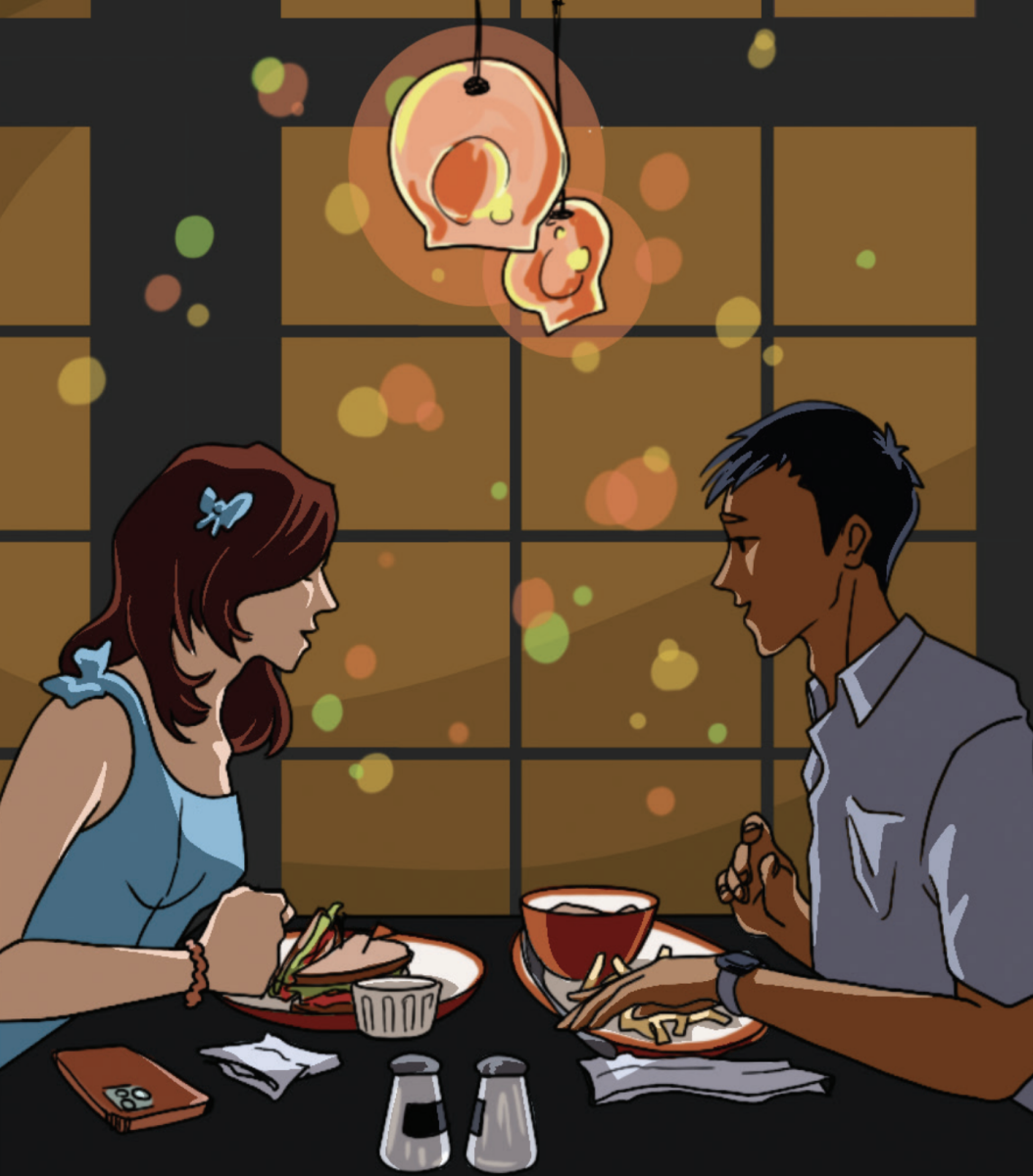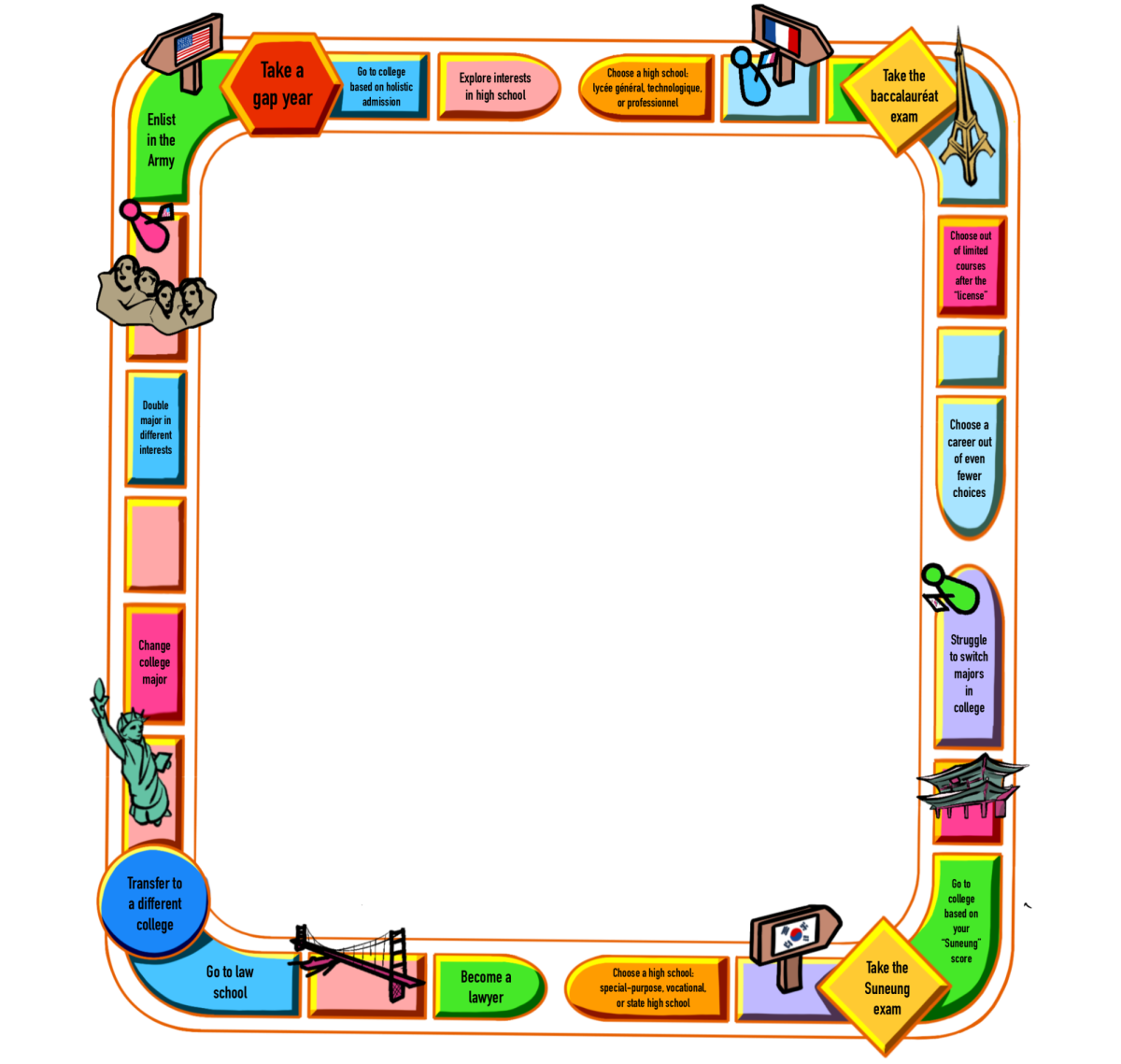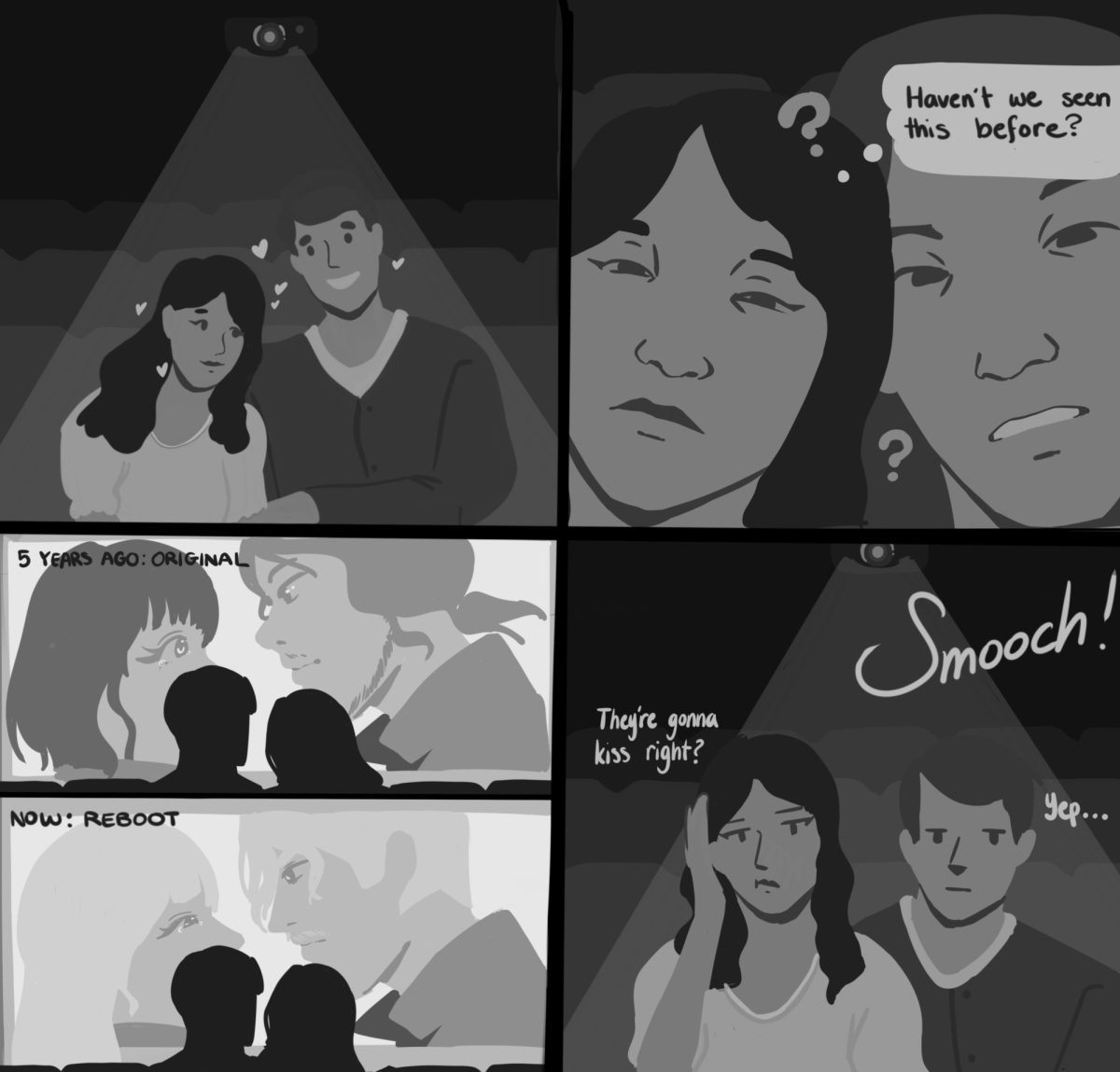Written by Yael Livneh
Step into the Michaels craft store on Charleston any time after Halloween and a barrage of lights, toy trains and fake snow will fill your peripheral vision. Garlands priced at $20 for 12 feet and cheap one-dollar “stocking-stuffers” overflow on every store shelf. Commercials and advertisements featuring a jolly round man dressed in bright red plaster every wall and television. Hanukkah-themed mugs reading “Chutzpah” and “Mensch on a Bench” dolls sit side-by-side by the cashier line, tempting shoppers with their bottom-of-the-barrel prices. The heavy commercialization of the holiday season by huge corporations and their intrusive advertising has emphasized materialistic items and excessive consumerism rather than community and family.
Along with technological advancements, companies have gained more intimate access to their consumers and are taking advantage of it by blasting an overly consumerist mentality into the daily lives of their customers. Advertising campaigns infiltrate every form of media, from Spotify ads to sponsored Instagram posts. In today’s world, it is difficult to survive without some sort of electronic device on hand, and even harder to get around without social media. According to a 2017 Statista study on social media, 81 percent of Americans have at least one social media profile. On popular social media sites, such as Instagram and Facebook advertisements populate personal feeds. TotalRetail reports that 71 percent of advertisers have bolstered their Facebook ad spending since 2016, and the numbers continue to soar.
Additionally, during the holidays, corporations scramble to play to traditional holiday messages like family, friendship and joy as a strategy for economic gain. According to digital marketing blog Branded3, a study conducted on social media users on Twitter and Facebook showed that 46.2 percent of consumers reported feeling joy towards Christmas ads while 52.6 percent experienced anger, fear or sadness. Scrolling through one’s timeline during the winter season should not be a traumatic experience to the point where a majority of users are distressed and unhappy.
While gift-giving may be a lovely custom in theory, the splurging has skyrocketed, shifting the attention of the holidays solely towards consumerism. According to the National Retail Federation, the average American will spend $700 on holiday gifts this year alone. This vast spending will total to nearly $456 billion nationwide. For perspective, laying down 400 billion one dollar bills at is enough to cover the entire state of Delaware.
Increased spending is not the only thing that has changed the way society views the holiday season. Before the 1920s, the red-clad Santa Claus was depicted in bishop robes and animal skins and would be drawn as anything from a tall, gaunt man to a spooky-looking elf. In 1931, the Coca-Cola Company commissioned Michigan-based artist Haddon Sundblom to develop advertisements centered around Santa Claus. Sundblom painted him as a pleasantly plump man with a bushy beard, a “Coca-Cola red” suit and, to complete the look, a bottle of Coke in hand. The power of advertising has had such a strong grip on society that in less than a century, the holly jolly icon of the holiday season has primarily become an advertisement himself.
Commercialization has changed nearly everything about how the holidays are celebrated. Companies tack real values like love and family onto cheap products, promising happiness to the person receiving them. Now more than ever, with the ubiquitous presence of electronics in homes, cars and hands, consumers are losing the core values of the holiday season due to intense, corporate advertising. Traditional messages and figures have shifted ever further from what they once were—customs intended to bring us together. This year, take a step back from the ever-closer world of targeted advertising and excessive consumerism. Spend some time offline and unplugged, take a walk with family and friends, bake goods for neighbors or volunteer at a shelter. Enjoy the holiday season for what it is: a time to be together with loved ones, free from the stress of giving and getting material goods.












